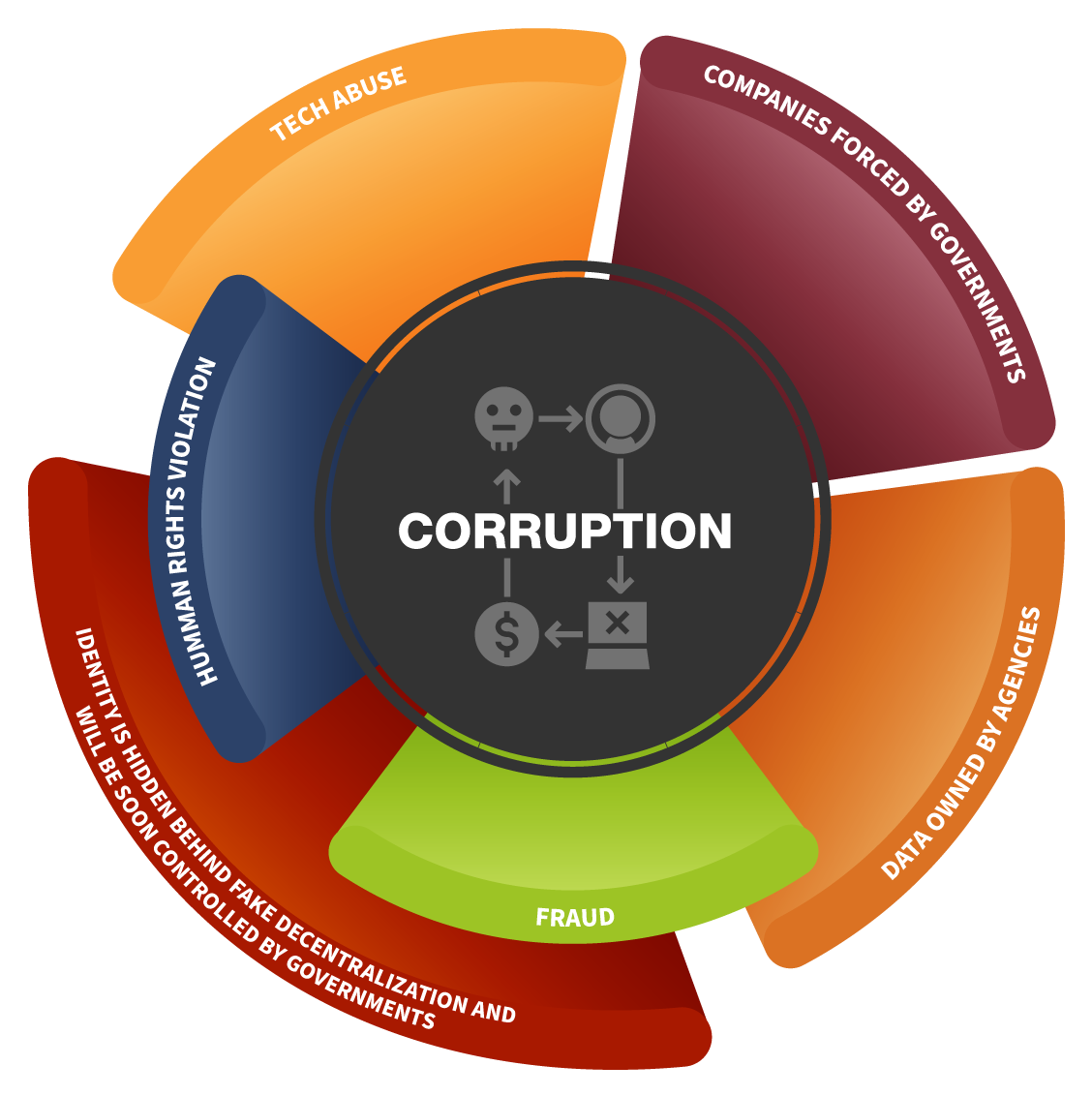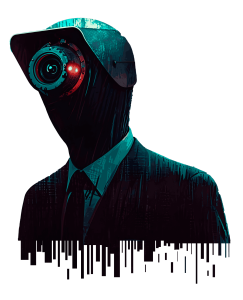Fraud is not Internet’s biggest THREAT
- Average cost of cyberattack in healthcare industry. Higher than any other vertical.
- $5.9 Million in the financial sector.


In the form of Digital Totalitarianism, governments or corporations exploit data, violate privacy, and infringe on human rights under the guise of national security or economic gain. This corruption goes beyond individual misuse, creating systemic threats where surveillance, censorship, and data control are normalized. Such practices are not limited to authoritarian regimes but are increasingly observed in democratic nations, further blurring the lines between safety and freedom.
These actions undermine trust and erode the foundational values of an open and secure internet.
Digital Authoritarianism or Totalitarianism
This term is often used when governments use digital tools and policies to monitor, control, and restrict their citizens, often under laws that justify these intrusions in the name of security. It goes beyond traditional cyber corruption by addressing systemic surveillance, privacy invasion, and data control.


Surveillance Capitalism
Coined by researcher Shoshana Zuboff, this term describes the practice of corporations profiting from the commodification of personal data, often in cooperation with or under the oversight of governmental policies. Here, private data becomes a tradable asset, with privacy and rights compromised for profit.
State-Sponsored Data Exploitation
This term emphasizes government use of legal frameworks, such as the Patriot Act, to justify accessing private information under the pretense of national security, often without sufficient transparency.

TheTrustCloud.org ©